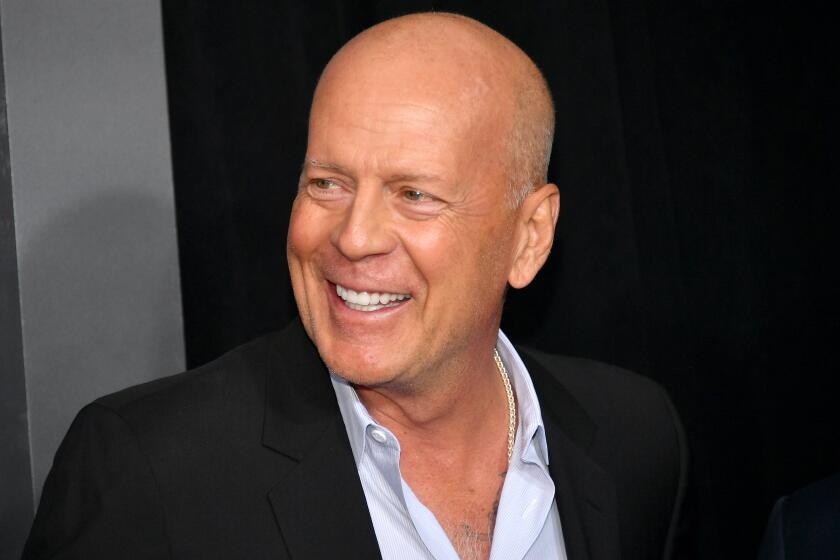Bruce Willis’ wife, Emma, begs paparazzi to stop yelling at him

- Share via
Emma Heming Willis made a plea Saturday to paparazzi who chase down her husband, Bruce Willis, who was recently diagnosed with frontotemporal dementia.
In an effort to raise “awareness around dementia,” Heming Willis posted a video on Instagram asking photographers and videographers to stop shouting at the “Die Hard” star while he’s spending time with loved ones in public. Willis’ family revealed in February that the actor’s “condition has progressed” since he was diagnosed last Spring with aphasia — “just one symptom of the disease Bruce faces.”
“This one is going out to the photographers and the video people that are trying to get those exclusives of my husband out and about,” Heming Willis said in her Instagram message.
“Just keep your space. I know this is your job, but ... please don’t be yelling at my husband and asking him how he’s doing or whatever ... just don’t do it, OK? Give him his space, allow for our family — or whoever’s with him that day — to be able to get him from point A to point B safely. That’s my PSA.”
Bruce Willis, who retired from acting last year due to aphasia issues, has been diagnosed with frontotemporal dementia, his family said Thursday.
Heming Willis’ remarks were provoked by recent headlines and a video of her husband “getting some coffee with some friends that did a stand-up job with protecting him.”
“If you are someone that is looking after someone with dementia, you know how difficult and stressful it can be to get someone out into the world and to navigate them safely,” Heming Willis said. “Even just to get a cup of coffee.”
In March 2022, Willis’ family announced that the 67-year-old action hero would be “stepping away” from his acting career while living with aphasia, a neurological disorder that affects a person’s ability to understand and communicate with others. Last month, the family had “a more specific diagnosis” to impart: FTD.
“Bruce always believed in using his voice in the world to help others, and to raise awareness about important issues both publicly and privately,” the family said.
“We know in our hearts that — if he could today — he would want to respond by bringing global attention and a connectedness with those who are also dealing with this debilitating disease and how it impacts so many individuals and their families.”
More to Read
The biggest entertainment stories
Get our big stories about Hollywood, film, television, music, arts, culture and more right in your inbox as soon as they publish.
You may occasionally receive promotional content from the Los Angeles Times.












